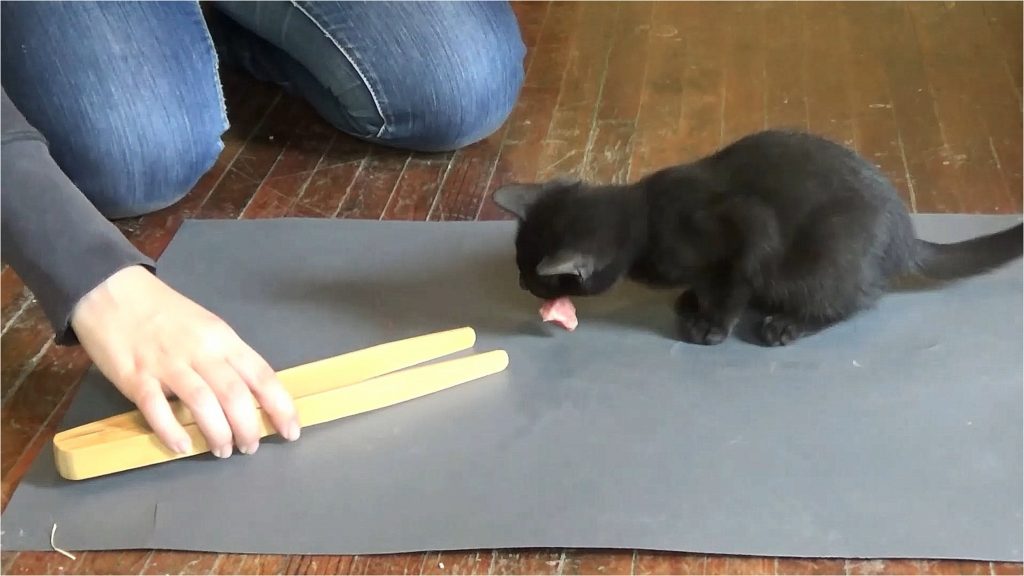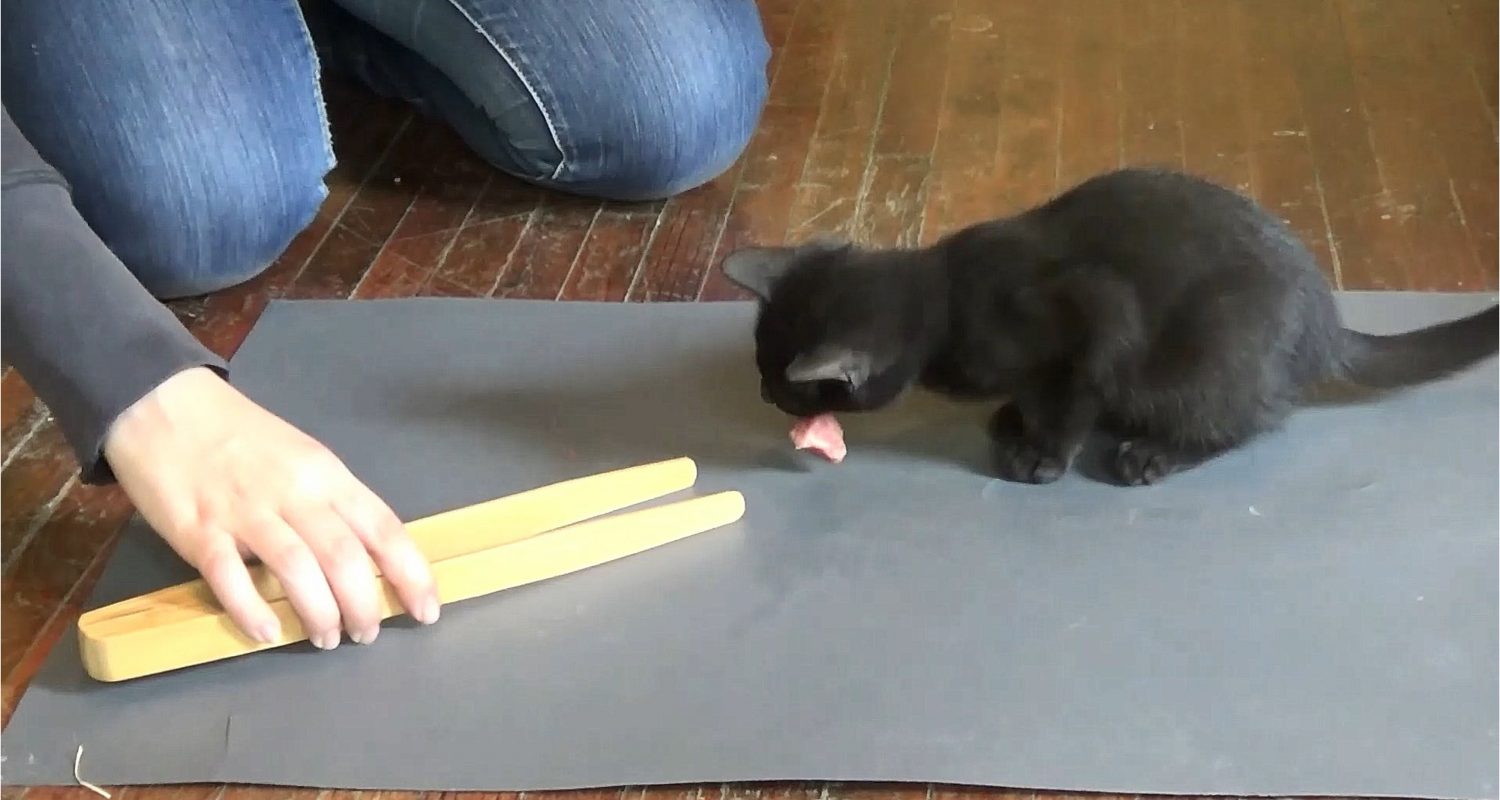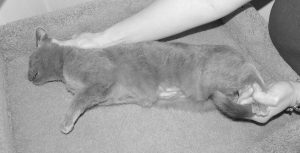A new study supports that being without mom is stressful for kittens!
I think most of us would assume that it’s good for young kittens to be raised by their moms! Kittens are born blind and deaf, and unable to regulate their body temperature. They rely on mom to feed, protect, and keep them warm. Unfortunately, many kittens get separated from their moms before they are ready to be on their own. This can be due to human error (good Samaritan finds kittens outside, doesn’t realize that mom is going to come back, and takes the kittens to an animal shelter) or due to mom cat behavior (sometimes mom cats get scared away from where she gave birth, or just aren’t cut out to care for their babies).
Regardless, it’s important to understand how early maternal separation can affect kittens. Shelters and foster caretakers are increasingly rescuing and caring for orphaned kittens and hand-raising them. Are there things we need to know about the effect of being orphaned on kittens?
About three years ago, I shared some of my own research that found that orphaned kittens showed increased signs of stress at 1 and 3 weeks of age compared to kittens raised with their mothers. When separated from their “nest” (meaning either litter mates if orphaned, or litter mates + mom if not), orphans cried and moved more than their age-equivalent mother reared kittens.
But does this difference persist? A recent study from UNAM and the National Institute of Psychiatry Ramon de la Fuente Muñiz in Mexico attempted to find out! In their newly published study, “Effects of early social separation on the behaviour of kittens of the domestic cat”, researchers looked at the effects of early separation from the mother and litter mates on the behavior of kittens at 9 weeks of age.
Methods: what did the researchers do?
There were three groups of kittens in the study: 32 mother-reared kittens, 14 orphaned kittens with siblings and 16 orphaned singletons. It is important to note that all kittens were fostered in homes, and no kittens were deliberately orphaned to be in this study. At the end of the study, all kittens were adopted into private homes.
Kittens were weighed regularly to monitor their growth. When kittens were 9 to 10 weeks of age, kittens were tested in their foster homes. There were three tests administered to each kitten:

- Struggle test – how the kitten responded to being petted three times then picked up. The test lasted until the kitten started to struggle or until 30 seconds had passed. The measure of interest was how long it took the kitten to begin struggling (if they did).
- Meat test – Previous studies showed that kittens would defend raw meat from other kittens and people. In this test, each kitten was given a bite sized piece of meat. The researcher would attempt to take the meat from the kitten with bamboo tongs. The kittens’ behavioral responses (such as growling, swiping) were noted.
- Isolation test – the kittens were placed in a carrier alone in a room for five minutes. A video camera recorded the kittens behavior.
Results: What happened in the study?
Struggle test: Orphans (both singletons and with litter mates) struggled sooner than mother-reared kittens.
Meat test: Orphans who had siblings began eating the meat sooner than mother-reared kittens. They did not show more signs of aggressiveness around the food.
Isolation test: Orphans were more vocal and active during the isolation test.
Weight: All kittens showed healthy growth, although male kittens weighed more than female kittens at 9-10 weeks of age.
What does it mean?
Similar to my research, 9- and 10-week old kittens who were orphaned showed an increased amount of vocalization and activity when separated from companions. This supports our findings that 1- and 3- week old kittens were more vocal and active when separated, and suggests that this behavioral difference persists at least until kittens are of or past weaning age. There were no real differences between orphans with litter mates from those without, which is an interesting result. There are many reasons to think that if you don’t have your mom, it would be better to have your litter mates than be without them. However, in the tests chosen for this study, all orphans were similar.
It would be great if future research can explore the longer term effects of early maternal separation on kittens. If increased stress responses persist, then we must do what we can to help orphaned kittens thrive. Here are some thoughts:
- When finding young kittens outside, assess whether they are truly orphaned. I like Kitten Lady’s CASA model on assessing whether kittens should be “rescued” or left where they are.
- When possible, place orphans with a lactating queen who can care for them. (Ideal, but not always easy!)
- If raising orphaned kittens, do what you can to provide them with care that mimics that of mom. That means feeding them at the recommended frequency for their age range (such as every 2-3 hours for their first few weeks, around the clock), provide them with gentle handing that mimics mom grooming them, and try to place them with other appropriate feline companions ASAP to help with their socialization.
Learn more about kittens!
I’ve covered this team’s research a few times now, and I really appreciate the work they are doing to help us better understand kittens and the kitten-mom relationship! Read a few other summaries of their research:
- Sniffing kitten butts for science?
- Do kittens recognize their mothers even after they’ve lived apart?
- Can kittens do math? What a new study tells us about cats’ cognitive abilities
And – I’ll be presenting on early life experiences in kittens in more detail at two online conferences this fall:
- 2023 National Kitten Coalition Veterinary Conference – October 8, 2023
- IAABC Pounce November 18 & 19, 2023


Photo and video courtesy of Martínez-Byer, S., Hudson, R., Bánszegi, O., & Szenczi, P. 2023.
References
Lowell, K. J., Delgado, M. M., Mederos, S. L., & Bain, M. J. (2020). The effect of premature maternal separation on distress vocalizations and activity in kittens (Felis catus) during a brief nest separation. Applied animal behaviour science, 232, 105130.
Martínez-Byer, S., Hudson, R., Bánszegi, O., & Szenczi, P. (2023). Effects of early social separation on the behaviour of kittens of the domestic cat. Applied Animal Behaviour Science, 259, 105849.



